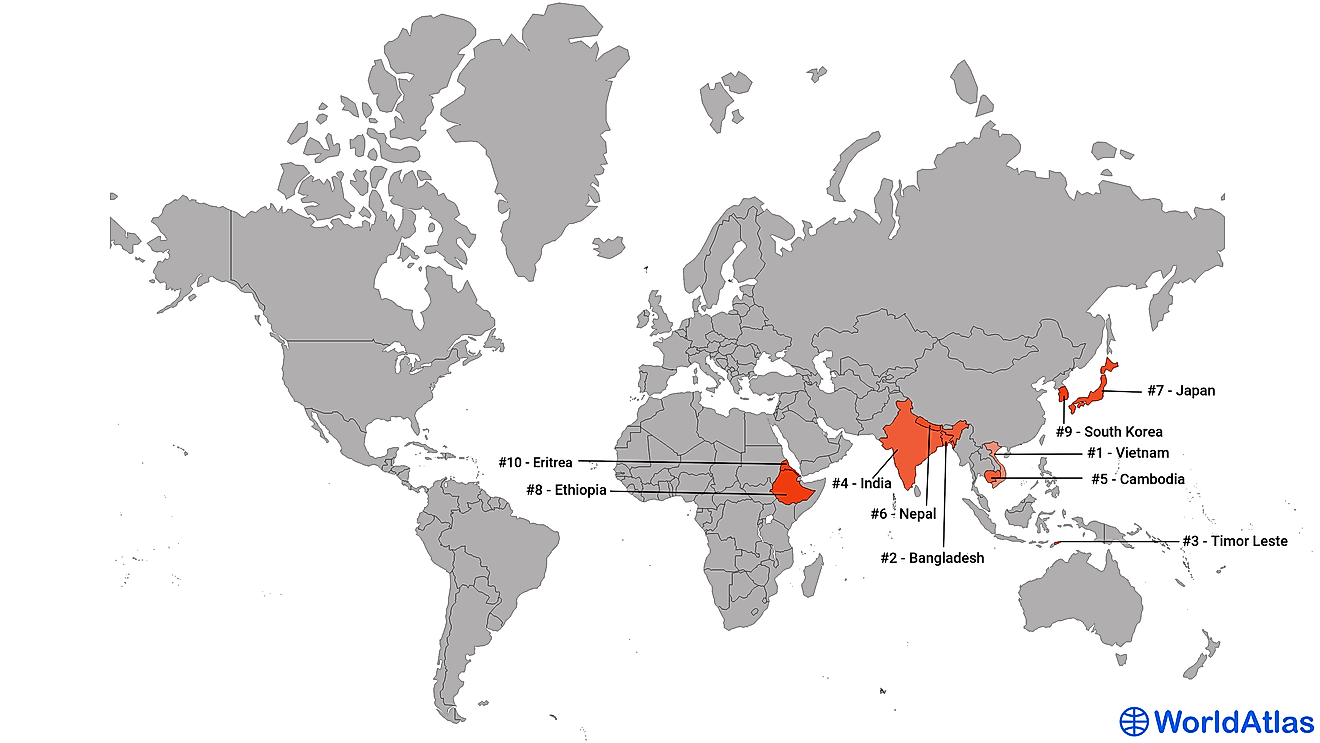Countries With The Most Nobel Laureates In Physiology And Medicine

Nobel Prizes are international awards awarded to the people who have done immense work in fields related to academics, culture, medicine, peace, literature and physiology. The first award price was started in 1895 by Swedish inventor Alfred Nobel. With the changing time, the concept of awards changed yet the value remains the same. Since the start of the award ceremony, United States has most number of Nobel Prize winners in the field of physiology and medicine. These awards are given to the people who have immense contribution in the field of medicine and physiology.
Notable Nobel Laureates in Medicine and Physiology
United States has the most (93) of the Nobel Awardees in Physiology and Medicine. Second is the United Kingdom with 29 and Germany with 16 people who have been awarded the highest honor. There are many Nobel laureates from other countries as well, each with notable contributions in the fields of Physiology or Medicine.
In the year 1901, Emil Adolf Von Behring from Germany was the first to be awarded with Nobel Prize for his work on serum therapy. In 1905, Robert Koch was awarded for his contribution in the research and discoveries regarding the treatment of Tuberculosis. In 1930, Karl Landsteiner from Austria was awarded with Nobel Prize for discovering human blood group, which was one of the major achievements in Medicine. In 1932, Sir Charles Scott Sherrington and Edgar Douglas Adrian from United Kingdom won the award for their contribution regarding the working and functioning of neurons. Thomas Hunt Morgan in 1933 from USA won the award for his major contribution in discovering the role played by chromosomes in heredity.
In 1945, Sir Alexander Fleming, Sir Ernst Boris Chain, and Howard Walter Florey were awarded for their discovery in Penicillin, which revolutionized the whole medical world. Penicillin is an antibiotic medicine that proved to fight with many diseases, which were the reasons for high death rate. The huge rise in human populations since then has been partially attributed to the use of Penicillin. Paul Hermann Muller in 1948 discovered the efficiency of DDT, which led him to win the Nobel Prize. In 1959, Arthur Kornberg and Severo Ochoa were awarded for their contribution in defining the mechanism of RNA and DNA. In 2008, Luc Montagnier and Françoise Barré-Sinoussi from France won the Nobel Prize in their discovery of Human Immunodeficiency Syndrome, often simply known as HIV, which affects the immune system of humans, resulting in increased susceptibility to, and often slow deaths from, other diseases, such as Tuberculosis, diarrhea, malaria, and many others.
Significance of the Nobel Prize
The Nobel Prize is awarded for recognizing the true endeavor of the people who have contributed in modifying and revolutionizing the world with their work in different fields of life like academia, literature, peace, and many more. These people are usually the one who are not recognized or given the needed respect and importance because they belong from the boring field. Nobel Prize gives them a platform, which sets example for the rest to work for the betterment of the society. We may not know any awardees personally, but their contributions to society as a whole have been immensely high. Therefore, we must take time to thank them for making our lives better by sacrificing extraordinary amounts of their own time and effort in dedication to their respective lives' work.
Countries With The Most Nobel Laureates In Physiology And Medicine
| Rank | Country | Nobel Laureates In Physiology Or Medicine |
|---|---|---|
| 1 | United States | 93 |
| 2 | United Kingdom | 29 |
| 3 | Germany | 16 |
| 4 | France | 10 |
| 5 | Sweden | 8 |
| 6 | Switzerland | 7 |
| 7 | Australia | 6 |
| 8 | Austria | 5 |
| 9 | Denmark | 5 |
| 10 | Belgium | 4 |
| 11 | Italy | 3 |
| 12 | Argentina, Canada, Netherlands, and Russia | 2 each |











